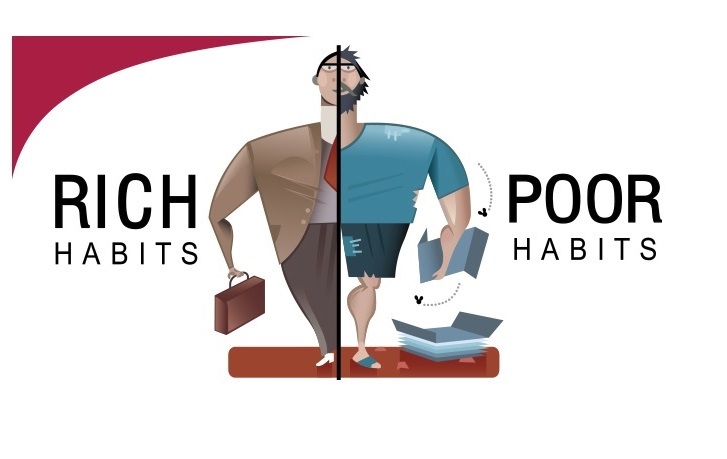A tax lien is a legal claim by a government authority, such as the IRS, against a taxpayer’s property due to unpaid tax debts. This claim acts as a security for the government, ensuring the taxpayer’s obligation is eventually fulfilled. Tax liens can significantly impact individuals and businesses, making it essential to understand their implications and how to resolve them.
How Does a Tax Lien Work?
The process of a tax lien begins when taxes remain unpaid after the due date. Here’s how it works.
Failure to Pay Taxes: The taxpayer fails to pay the required taxes by the deadline.
Notices and Demand for Payment: The IRS sends formal notices stating the amount owed and demanding payment. These can come in the form of CP14, CP501, CP503, and CP504.
Notice of Federal Tax Lien (NFTL): If the taxpayer does not respond, the IRS files an NFTL to publicly announce its claim against the taxpayer’s property. The IRS can file a NFTL as soon as 10 days after issuing a demand for payment if the tax debt is $10,000 or more. Before doing so, the IRS is generally obligated to make reasonable attempts to contact the taxpayer.
Final Notice of Intent to Levy: Before the IRS can move forward with a levy, they must issue a Final Notice of Intent to Levy, typically Letter 1058 or LT11. This notice provides the taxpayer with at least 30 days to respond and the right to request a Collection Due Process (CDP) hearing.
This lien can attach to all of the taxpayer’s current and future assets, including real estate, vehicles, and financial accounts.
Types of Tax Liens
Tax liens can vary depending on the level of government imposing them and the type of unpaid tax. Understanding these distinctions is crucial.
Federal Tax Lien
A federal tax lien is imposed by the IRS for unpaid federal taxes. It applies to all current and future assets and remains in place until the debt is resolved. For example, if a taxpayer owes back taxes, the lien might prevent them from selling their property without first addressing the debt.
State Tax Lien
State tax authorities can also impose liens for unpaid state-level taxes, such as income or property taxes. For instance, a homeowner who fails to pay property taxes may face a lien on their home, making it challenging to refinance or sell the property.
Impacts of a Tax Lien
The effects of a tax lien extend beyond immediate financial obligations, touching on creditworthiness, asset management, and business stability. Understanding these impacts can help mitigate long-term consequences.
On Credit
Although federal tax liens no longer appear on credit reports, their existence can still affect a taxpayer’s ability to secure loans. Financial institutions often uncover liens during background checks, viewing them as a risk factor.
On Assets
A tax lien grants the IRS a legal claim on specific assets. For instance, if a homeowner has a lien on their property, they might need to pay off the lien before completing a sale or refinancing. Similarly, liens can attach to vehicles, bank accounts, or other personal property.
On Business
Tax liens can severely impact businesses. For example, a small business owner with a lien on their equipment may find it challenging to secure financing or renew vendor contracts. The lien signals financial instability, potentially damaging the business’s reputation.
How to Address a Tax Lien
Resolving a tax lien requires a strategic approach tailored to your financial situation. Various options are available to address tax liens, ranging from full payment to negotiating settlements. Understanding these options can help you regain control of your financial stability.
Full Payment
The most straightforward way to resolve a tax lien is by paying the tax debt in full. Once the IRS receives the payment, the lien is released within 30 days. For example, a taxpayer might sell nonessential assets or liquidate investments to settle the debt.
Installment Agreement
Taxpayers unable to pay the full amount can negotiate an installment agreement with the IRS, allowing them to make monthly payments. A Partial Payment Installment Agreement (PPIA) is another option for those who cannot pay the total debt even over time.
Offer in Compromise (OIC)
An Offer in Compromise allows taxpayers to settle their tax debt for less than the full amount if they meet specific qualifications. For instance, a taxpayer experiencing financial hardship might qualify for an OIC and have their lien lifted upon approval.
Discharge of Property
A discharge removes a lien from specific property, enabling its sale or refinancing. This option is typically used when selling an asset, such as real estate, that is subject to the lien. For example, a taxpayer selling a rental property may apply for a discharge, ensuring the transaction can proceed even though the lien remains on other assets.
Subordination
Subordination allows another creditor to take priority over the IRS’s claim, making it possible for the taxpayer to secure loans. For instance, a homeowner might obtain a mortgage to refinance their property, despite the lien.
Withdrawal
The IRS may withdraw a lien if the taxpayer meets specific criteria, such as entering into a Direct Debit Installment Agreement (DDIA). Withdrawal ensures the lien is no longer public but does not eliminate the taxpayer’s obligation to pay the debt.
Examples of Tax Liens in Real Life
Let’s say a small business owner owed $50,000 in unpaid payroll taxes. The IRS filed a federal tax lien, preventing the owner from securing a loan to purchase new equipment. The owner negotiated a Partial Payment Installment Agreement, demonstrating financial hardship and agreeing to monthly payments. The lien remained in place but did not hinder daily operations once the payment plan was established. In another example, an individual with a tax lien on their vehicle could not sell it without resolving the lien. They entered into an installment agreement with the IRS, which allowed the lien to be released after the debt was paid off over time.
Preventing a Tax Lien
The best way to avoid a tax lien is by filing returns and paying taxes on time. If paying the full amount is not feasible, taxpayers should explore payment options. Proactive communication with the IRS can prevent a lien. For example, a taxpayer anticipating payment difficulties should contact the IRS to request a short-term payment plan or extension.
Tax Help for Those With Tax Liens
A tax lien is a serious matter that can affect your financial stability, assets, and business operations. However, understanding how tax liens work and the available options to address them can help mitigate their impact. By proactively managing your tax obligations and seeking professional assistance if necessary, you can avoid or resolve a tax lien and protect your financial future. Optima Tax Relief is the nation’s leading tax resolution firm with over $3 billion in resolved tax liabilities.
If You Need Tax Help, Contact Us Today for a Free Consultation



























